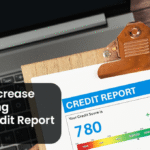Small businesses often face financial challenges, and debt is one of the most significant hurdles they encounter. Understanding the impact of small business debt is crucial for strategic financial growth. Debt can impede the growth and success of a business, hindering its ability to invest in new opportunities, hire employees, or expand operations. Therefore, small business owners need to comprehend the implications of debt and seek effective solutions to overcome this obstacle.
Small business debt can arise from various sources, such as loans, credit cards, or lines of credit. When debt accumulates, it can strain a company’s finances, leading to cash flow problems and limiting its ability to invest in growth initiatives. Additionally, high levels of debt can negatively affect a business’s credit rating, making it harder to secure future financing. To mitigate these challenges, small business owners must adopt a proactive approach to managing their debts.
One strategy for managing small business debt is to negotiate with business debt defaulters. By engaging in open communication and exploring repayment options, businesses can potentially reach mutually beneficial agreements. It is crucial to maintain transparency and provide evidence of financial difficulties to increase the likelihood of successful negotiations. Additionally, seeking professional assistance from debt management agencies or financial advisors can provide valuable guidance throughout the negotiation process.
Strategies for negotiating with business debt defaulters
When facing business debt defaulters, it is essential to approach negotiations with a well-defined strategy. Here are some effective strategies to consider:
- Assess the financial situation: Before entering into negotiations, thoroughly evaluate your business’s financial position. This includes assessing the total debt, identifying the most significant defaulters, and understanding your company’s cash flow. This information will help you determine the best approach and potential solutions.
- Open communication: Establishing open and honest communication with business debt defaulters is crucial. Clearly express your desire to resolve the debt while also understanding their perspective and financial constraints. Open dialogue can lead to mutually beneficial agreements.
- Explore repayment options: During negotiations, be prepared to propose various repayment options. These could include reduced interest rates, extended payment terms, or settling the debt for a lump sum payment. Flexibility in repayment options can increase the likelihood of resolving.
Remember, each negotiation is unique, and finding the right solution may require patience and persistence. By employing these strategies, small businesses can effectively navigate the challenges posed by business debt defaulters and move toward financial stability.
Small business debt solutions and strategies
To achieve strategic financial growth, small business owners must implement effective Small Business Debt Solutions and strategies. Here are some approaches to consider:
- Debt consolidation: Consolidating multiple debts into a single loan can simplify repayment and potentially reduce interest rates. This strategy allows businesses to streamline their debt management efforts and focus on long-term growth.
- Restructuring debt: Negotiating with lenders to restructure debt can be an effective solution, particularly during challenging economic times. Restructuring may involve extending payment terms, reducing interest rates, or modifying repayment schedules to accommodate the business’s financial capabilities.
- Seeking professional assistance: Engaging the services of debt management agencies or financial advisors can provide valuable expertise and guidance in managing small business debt. These professionals can help analyze the financial situation, negotiate with creditors, and develop customized debt solutions.
It is important to note that Small Business Debt Solutions should be tailored to the specific needs and circumstances of each business. By exploring different strategies and seeking professional advice, small business owners can find the most suitable debt solutions to support their growth objectives.
The role of financial risk management in strategic growth
Financial risk management plays a vital role in strategic growth for small businesses. Effectively managing and mitigating risks associated with debt and investments can safeguard a company’s financial health and support its long-term growth. Here are key considerations for small business owners:
- Identify potential risks: Conduct a thorough assessment of potential risks related to debt and investments. This includes analyzing market conditions, interest rate fluctuations, and the overall economic climate. Identifying potential risks allows businesses to develop proactive strategies to mitigate them.
- Diversify investments: Diversification is an essential risk management strategy. Spreading investments across different sectors or asset classes can help reduce the impact of market fluctuations and increase the chances of achieving positive returns.
- Regular monitoring and evaluation: Continuously monitor and evaluate the financial performance of the business. Regularly reviewing the company’s financial health, debt levels, and investment returns enables small business owners to identify potential issues early and make informed decisions.
By incorporating robust financial risk management practices into their strategic planning, small businesses can navigate uncertain economic conditions and position themselves for long-term growth and success.
How to evaluate investment opportunities effectively
Evaluating business investment opportunities are critical aspect of strategic financial growth for small businesses. Making informed investment decisions can contribute to increased profitability and overall business success. Here are key steps to effectively evaluate investment opportunities:
- Set investment criteria: Define clear investment criteria based on the business’s objectives, financial capabilities, and risk tolerance. This helps narrow down potential opportunities and ensures alignment with the company’s strategic goals.
- Conduct thorough due diligence: Perform comprehensive research and analysis on potential investment opportunities. This includes assessing the market, competitors, financial projections, and potential risks. Thorough due diligence provides valuable insights to make informed investment decisions.
- Evaluate potential returns: Assess the potential returns and profitability of the investment opportunity. Consider factors such as projected cash flows, return on investment, and the time horizon for achieving desired outcomes. Quantifying potential returns helps prioritize investment options.
- Consider risk and diversification: Evaluate the risks associated with the investment opportunity and consider how it aligns with the overall investment portfolio. Diversification is crucial to manage risk effectively and minimize the impact of potential losses.
By following these steps and conducting a diligent evaluation process, small businesses can make confident investment decisions that support their strategic financial growth objectives.
CreditQ: A revolutionary solution for small business debt
For small businesses seeking innovative debt solutions, CreditQ offers a revolutionary platform to manage and alleviate business debt. CreditQ provides a comprehensive suite of platforms and resources to support small business owners in navigating the challenges of debt management and Small Business Debt Solutions. With CreditQ, businesses can:
- Track and manage debt: CreditQ enables businesses to monitor and manage their debts in one centralized platform. This allows for better organization and control over outstanding obligations.
- Negotiate with creditors: CreditQ provides guidance and support throughout the negotiation process with business debt defaulters. The platform offers valuable resources and insights to enhance the chances of reaching favorable agreements.
- Access professional advice: CreditQ connects small businesses with experienced financial advisors who specialize in debt management. These professionals offer personalized guidance and strategies to help businesses overcome their debt challenges effectively.
Incorporating CreditQ into Small Business Debt Solutions can streamline operations, improve negotiation outcomes, and support long-term financial growth. By leveraging the innovative features and services provided by CreditQ, small business owners can take control of their debts and pave the way for strategic financial success.
In conclusion, understanding the impact of small business debt, employing effective negotiation strategies, and implementing Small Business Debt Solutions are crucial for strategic financial growth. Additionally, financial risk management and evaluating investment opportunities play significant roles in supporting long-term business success. By leveraging innovative solutions like CreditQ, small businesses can navigate the challenges of debt and position themselves for sustainable growth. Take control of your small business debt today and unlock the potential for strategic financial growth with CreditQ.






